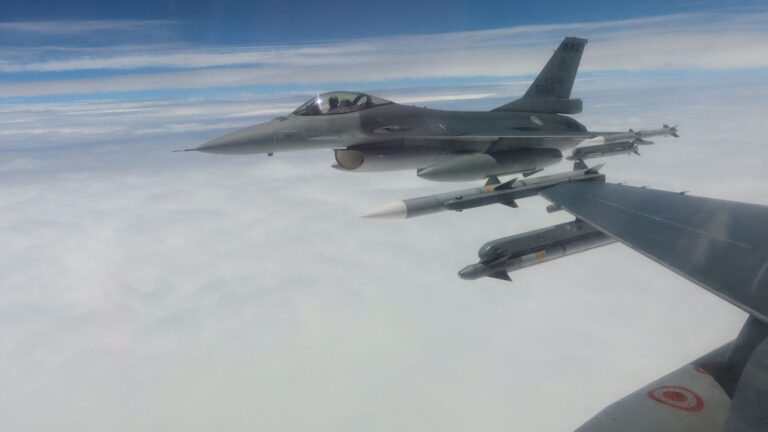Recent drills, which included the firing of mock missiles, seem to signal a subtle shift, perhaps a more aggressive strategy that President Xi Jinping is adopting to “reunify” Taiwan with mainland China.
In Keelung, about 30 minutes from the Taiwanese capital, Taipei, China’s latest military drills appear to be causing a kind of collective consternation.
Less than 24 hours after Beijing surrounded the self-governing island, Simulated missile launch The aim was to show how power can be seized.
These moves, combined with growing talk of “punishment” by Beijing, have caused alarm in the international community.
The State Department said the United States was “deeply concerned” and urged China to exercise restraint after the country concluded two days of military drills that included mock bomber attacks and ship boarding drills.
The drill took place with shorter notice than usual — 45 minutes instead of a day — and Beijing aired footage that looked like a full-scale demolition.
This seems to signal a subtle shift, perhaps a more aggressive strategy that President Xi Jinping is adopting to “reunify” Taiwan with mainland China.
Could China invade Taiwan?
But in Keelung, where the naval base is located, people seem to shrug off the idea of a growing threat from China.
On a muggy morning, all eyes are on the hip-hop group as they perform in front of a crowd.
There’s a woman walking around with a python around her neck, and another with an iguana on a lead – a rather out of place and slightly comical sight.
Political infighting seems far from people’s minds. Young people gathered here sipping beer in the midday heat say they’ve seen and heard so much rhetorical banter between Beijing and Taipei in their relatively short lives that they no longer take it seriously.
One man told me, “After so many years of military exercises, people have become accustomed to them and don’t think China will actually attack us.”
Another said: “I’m more worried about China influencing and infiltrating Taiwanese politics than about war.”
read more:
Taiwan’s new president has a clear message
Taiwan sends troops to ‘protect freedom’ during Chinese military drills
But when you step aboard Ke-Ming Wu’s ship, you hear a different perspective.
Kemin gave us a tour of the naval base, where we passed sailors who appeared to have just returned from responding to Chinese military exercises over the past few days.
He has seen decades of tension and rippling threats and understands the possibility of war, he just doesn’t see the logic in it.
He told me, “China is huge, and Taiwan is a very small country. One of the lakes in China is 10 times the size of Taiwan. Do you think this land would be of any benefit to them?”
But in reality, China is eager to “unify” with Taiwan, and some U.S. intelligence sources believe China could be preparing to invade by 2027.
Former Taiwanese navy captain Lu Lishih said that date seemed like a reasonable estimate.
“Yes, China is preparing for war,” he said. “Judging by the number of warships and the number of new recruits they’re hiring, it’s all for their own defense and for Taiwan.”
But like many analysts, he acknowledges that this would be a highly politically risky move for Beijing and too costly for a country with a struggling economy at the moment.
Why are tensions rising between Taiwan and China?
What happened this week feels more like a warning shot than a major shift in strategy.
The Chinese government despises Taiwan’s new leader, Lai Ching-te, whom it sees as a dangerous separatist.
His inaugural address, in which he said that “the two sides are not subordinate to each other,” infuriated Beijing, and it is clear that Beijing wanted the world to know that.
But at this point, war would be enormously costly for Beijing, both economically and politically, and keeping Taiwan out rather than taking it seems more plausible at the moment.
But further exercises seem inevitable, and it’s probably no coincidence that China has dubbed this one “2024A.” Operation B may be just around the corner.

